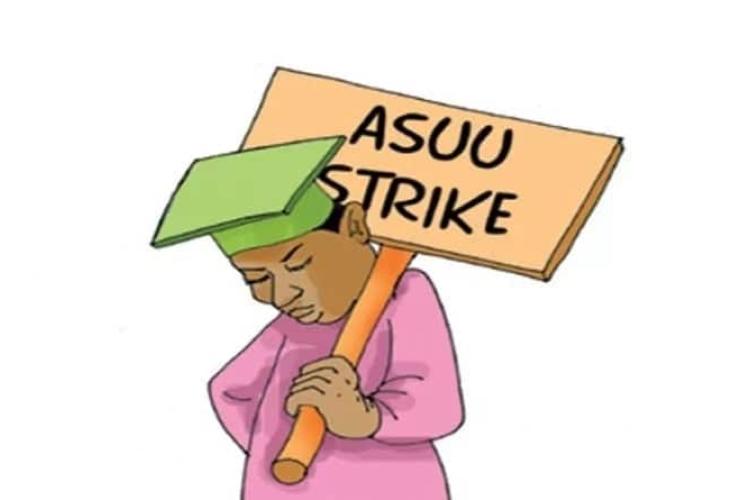When will university strikes end?
The perennial conflict between the government and the Academic Staff Union of Universities (ASUU) has become a deeply ingrained tradition in Nigeria’s education system. This is as a result of the government’s apparent disregard for the welfare of staff of tertiary institutions, particularly universities. The strikes have consistently hindered progress in the education system. The […]

The perennial conflict between the government and the Academic Staff Union of Universities (ASUU) has become a deeply ingrained tradition in Nigeria’s education system. This is as a result of the government’s apparent disregard for the welfare of staff of tertiary institutions, particularly universities. The strikes have consistently hindered progress in the education system.
The first strike was to address three key demands from the government: implementation of the Elongated University Salary Scale (EUSS), establishment of a robust committee for joint negotiations to resolve crises between the federal government and university staff and granting of universities’ autonomy.
In response to the strike, the military government, led by General Ibrahim Babangida, and his Minister of Education, Professor Jibril Aminu, attempted to ban ASUU and seize its property. ASUU members faced severe maltreatment, including detention, torture and seizure of passports.
Despite the severe maltreatment faced by key leaders of the union under the military dictatorship, ASUU’s struggle persisted. In response, the union sought alternative means to safeguard the welfare of university staff, leading to the establishment of the University Lecturers Association (ULA).
- Farmer: I earn N7m annually from growing tomato, pepper
- Slain officers: ‘You’ve murdered peace’, IGP orders IMN sponsors’ manhunt
Unfortunately, the long and agonising battle between the government and ASUU has yet to be resolved. Every administration has witnessed ASUU going on strike. When will the university strikes finally come to an end? Don’t we have a Ministry of Education in Nigeria? Can’t they develop long-term plans for the education sector to avert crises in the education sector?
The previous administration of President Muhammadu Buhari exacerbated the ASUU situation by employing tactics that included the withholding of salaries and unnecessarily litigating matters in court; which only served to prolong the issues.
Regrettably, the government and parents in Nigeria have continually viewed ASUU as an adversary. It is often forgotten that ASUU’s struggles extend beyond staff welfare to encompass the interests of parents, students and the very survival of the education sector. This misconception stems from a lack of understanding regarding ASUU’s objectives and aims, which are geared towards reforming and enhancing the education sector.
ASUU’s commitment and dedication to advocating improved university conditions, academic freedom and staff welfare have been misinterpreted by the public as an obstacle to progress. It is essential to recognise the union’s efforts as crucial to revitalising our education system.
During campaigns, President Bola Tinubu made a pledge to bring an end to strikes in Nigerian universities. However, in a surprising turn of events, ASUU has issued a notice to go on strike, leaving many to wonder why the union has chosen this course of action despite the president’s promise of reform? The current strike notice presents another challenge for the Tinubu government to address the longstanding issues plaguing Nigeria’s education system.
President Tinubu is urged to honour and fulfil promises he made for a strike-free academic calendar in Nigerian universities by acceding to the legitimate demands of ASUU, thus guaranteeing an uninterrupted and enhanced learning environment for students in the university.
Sale Rusulana Yanguruza, Department of Mass Communication, Borno State University [email protected]
